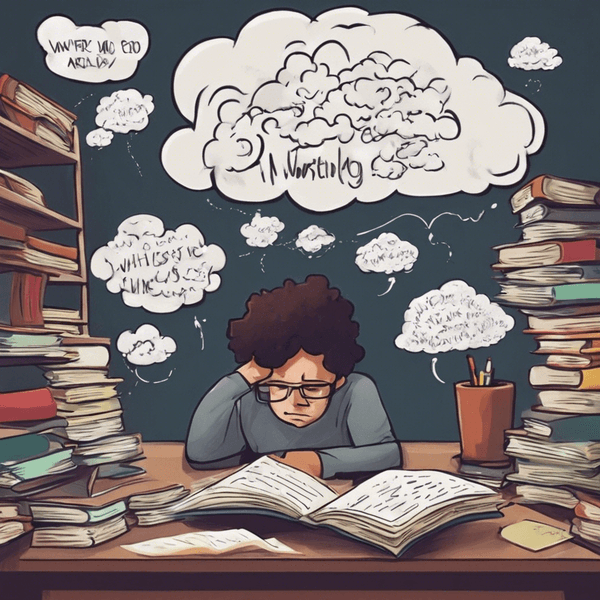Communicating with other people can be challenging and an anxiety-ridden experience. Instead of struggling, take the time to learn how to be a better communicator, listener, and friend. In fact, here are five interpersonal communication tips that I learned this semester while taking a communication course. Hopefully you can put them to good use and improve your interactions with others.
1. Do you want to detect lies?
If you are worried that someone is trying to deceive you, do not use their eye movement as a key sign. In terms of eye movement, individuals have many reasons to have restless eyes, including factors like anxiety and stress. People also tend to focus on controlling their upper body when lying. Therefore, watching people's lower body movement could be a way to detect a liar as people may relieve their stress through shaking their legs or other such movements.
When anxious about potential lies, do not ask too many questions to the conversation partner. If questions are necessary, ask open-ended questions that do not provide potential answers and escapes. Liars sometimes use the information included in questions to come up with a response. For instance, if you were to ask your friend where they were on Friday night, they would have to create a response. However, if you asked them if they were with their friend at the club, then they would have information to base their response off of to create a lie. Studies demonstrate that liars are detected more often based on verbal admissions and discrepancies compared to nonverbal actions.
2. How should you mitigate conflict?
When in a conflict or disagreement with another person, do not target their personality. Instead, maintain a steady focus on the topic in question. Attacking an individual's conflict will likely only heighten negative emotions and lead to an undesirable outcome.
People should also avoid targeting their conversation partner during conflict-based interactions. This can transpire when people focus their statements on the other person and use words like "you" and "your." If a person said to you, "You are an awful annoying person," you would probably be inclined to leave the conversation or exude aggression. However, if a person said, "I feel irritated and annoyed when you leave the dishes out," you would probably be more willing to listen. This is because the message focused on a specific behavior instead of the aspects of a person's character and being.
3. Make sure you do not fall into common attribution errors and unsuccessful communication tendencies.
The Fundamental Attribution Error transpires when people attempt to explain the actions and decisions of others in terms of one's internal character rather than external influences. This contrasts the Actor-Observer Effect. With this tendency, people tend to explain their own negative behavior in accordance to external stimuli.
Think about it. If you do bad on an examination, do you often say that the test was simply difficult, that the teacher lacked in communication, or you felt bad when taking the exam? In all of these instances, you are explaining your own performance based on external factors that impacted you. However, most people attribute people's failures and shortcomings to the person's personality instead of the barriers and hurdles that may have impacted them.
The Self-serving Bias is another concept that people use to maintain their personal perceptions of themselves. According to this idea, when people succeed, they tend to attribute their success to their own character and personality. This contrasts to how people perceive their behavior when they fail or experience unpleasant hardships.
4. Are you having doubts about how close your relationship is to friends or romantic partners?
When people become closer and more intimate with others, they tend to shift their language towards more pluralistic formations. As people transition from using individualistic words like "I" and "you" to "we" and "us," a closer bond is also witnessed between the conversation partners. The transition in language demonstrates that a partner is now thinking about their actions and future with you in mind. It is a more group-oriented mindset compared to an independent life view.
When people become closer to another person, they also tend to be less polite, especially when making requests. This is because the support and help is already assumed when people are close. For instance, a person may not be as kind to their sister when asking for help during a move. However, the reason for this impoliteness is due to the preconceived belief that the person will help them due to the established relationship. On the other hand, people are more likely to be considerate and kind to those they are not that close to because they do not want others to think badly of them or deny them a request.
Another thing to look at when trying to determine the closeness of a relationship is the amount of inside lingo and jokes. Relationships that are closer tend to contain more phrases that only the "insiders" will understand. There are higher chances that your family or friend group has certain words, gestures, and jokes that others would not understand without explanation. These often form through interactions and experiences together.
5. Overall, being a good communicator requires flexibility and adaptability.
In order to maintain relationships with people and have effective communication experiences, people need to adapt their communication tendencies to meet the situation and the expectations of the conversation partner.






 StableDiffusion
StableDiffusion Photo by
Photo by  Photo by
Photo by 
 full parking
StableDiffusion
full parking
StableDiffusion









